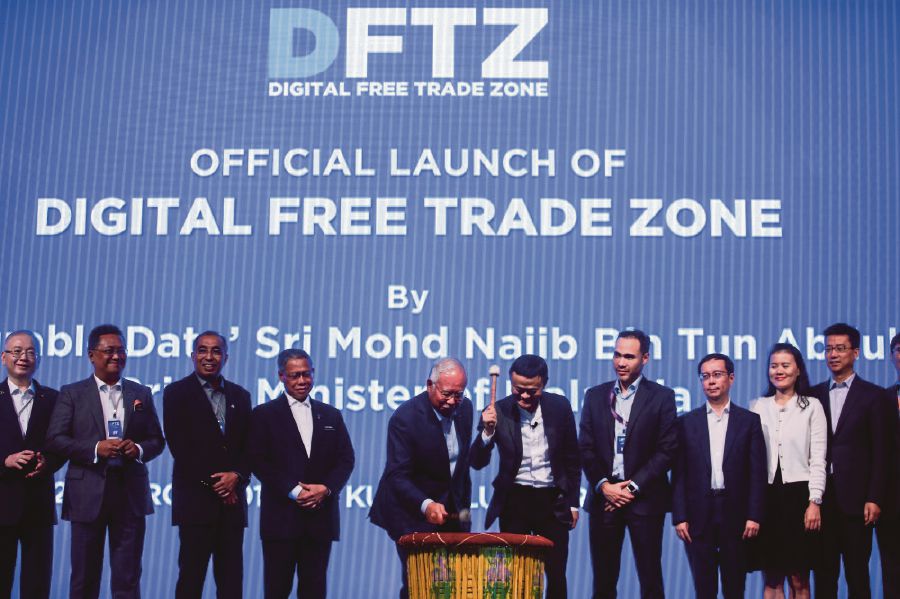
Internet Alliance (IA) – also known as “Persatuan Hubungan Internet Selangor dan Kuala Lumpur”, shares the collective feedback of its 50 members of Internet Service Providers, on the Malaysian Government’s latest announcement for a Digital Free Trade Zone (“DFTZ”).

Currently, digital connectivity as an economic activity contributes nearly 16% to the country’s annual gross domestic product (GDP) – of which the eCommerce subsector makes up about half of it at 8.8%. President of Internet Alliance, Chan Kee Siak says that IA believes that the successful DFTZ implemen-tation can boost Malaysia’ GDP contribution from digital connectivity economy.
He says, “Currently, the contribution from the digital connectivity economy is about 16% but we believe that a single focused effort such as DFTZ can boost it to as high as 25% and beyond as soon as by end 2017. IA believes so because the local internet community is a fast adapter and knows how to organically leverage any (good) initiative quickly.”
Details of DFTZ which are to be announced in April, is aimed to boost the country’s eCommerce industry by primarily, knocking down tariffs imposed on items being shipped into the country that are priced over RM500 and enabling faster Customs clearance procedures.
But whilst this internet initiative is an admirable effort by the Government, laments the lack of Government dialogue with the local internet market. “So far, only Jack Ma of Alibaba seems to have to be consulted. No doubt he is an international success icon for all things internet, but IA believes that the input from local internet players and service providers are much more relevant for DFTZ to truly succeed,” says Chan.
The DFTZ is believed to be an extension of the Malaysian Government’s allocation of RM162 million by Malaysian Digital Economy Corporation (MDEC) to implement pro-grammes to boost this new digital economy effort.
The DFTZ is conceptually a microcosm of the current physical free trade zones such as at Pasir Gudang, Bayan Lepas and Port Klang; and DFTZ is meant to offer a conducive and competitive environment for internet companies to digital-based economic activities including trade, provision of services and the development and production of solutions.
Chan refers to the “fragile” state of the Iocal internet market whereby a single bad, or ambiguous policy could spell success or doom for the eCommerce sector.
He gives the examples of the recent Withholding Tax issue – which is till today ambiguous at best, as the general tech market is inclined to assume that it covers the payment for the use of, or the right to use software.
“One of the most significant taxation impacts for the tech sector was when Budget 2017 (unveiled October 2016) that saw the re-imposition of withholding tax on offshore services – which we see is a counter-productive tax rule that has impacted a wide range of businesses from startups, SMEs to multinational companies which are paying for technical assistance and technical services rendered by non-residents.”
He explains that in the world of Cloud computing whereby eCommerce and internet service providers rely greatly on the provisioning of software and applications (regardless from where they are hosted within or out of country), this brings about a huge headache as strict adherence to the withholding tax would essentially mean a direct 10% loss to the internet service provider.
Set up in 2010, Internet Alliance currently has 50 members who mainly consist of Internet Service Provider corporate members (Website hosts, Cloud, Internet Infrastructure and eCommerce platform providers) who collectively facilitate about 85% of Malaysia’s active internet scene. IA recommends the following for the DFTZ: –
a) Hold proactive dialogue sessions with the local ‘grassroot’ internet service provider community to assess the viability and impact of all DFTZ taxation policies;
b) Ensure the interests of local internet and eCommerce community to benefit from DFTZ instead of just foreign players;
c) That DFTZ does not unwittingly become a China or Alipay-centric initiative but to be fair for all regional markets.










